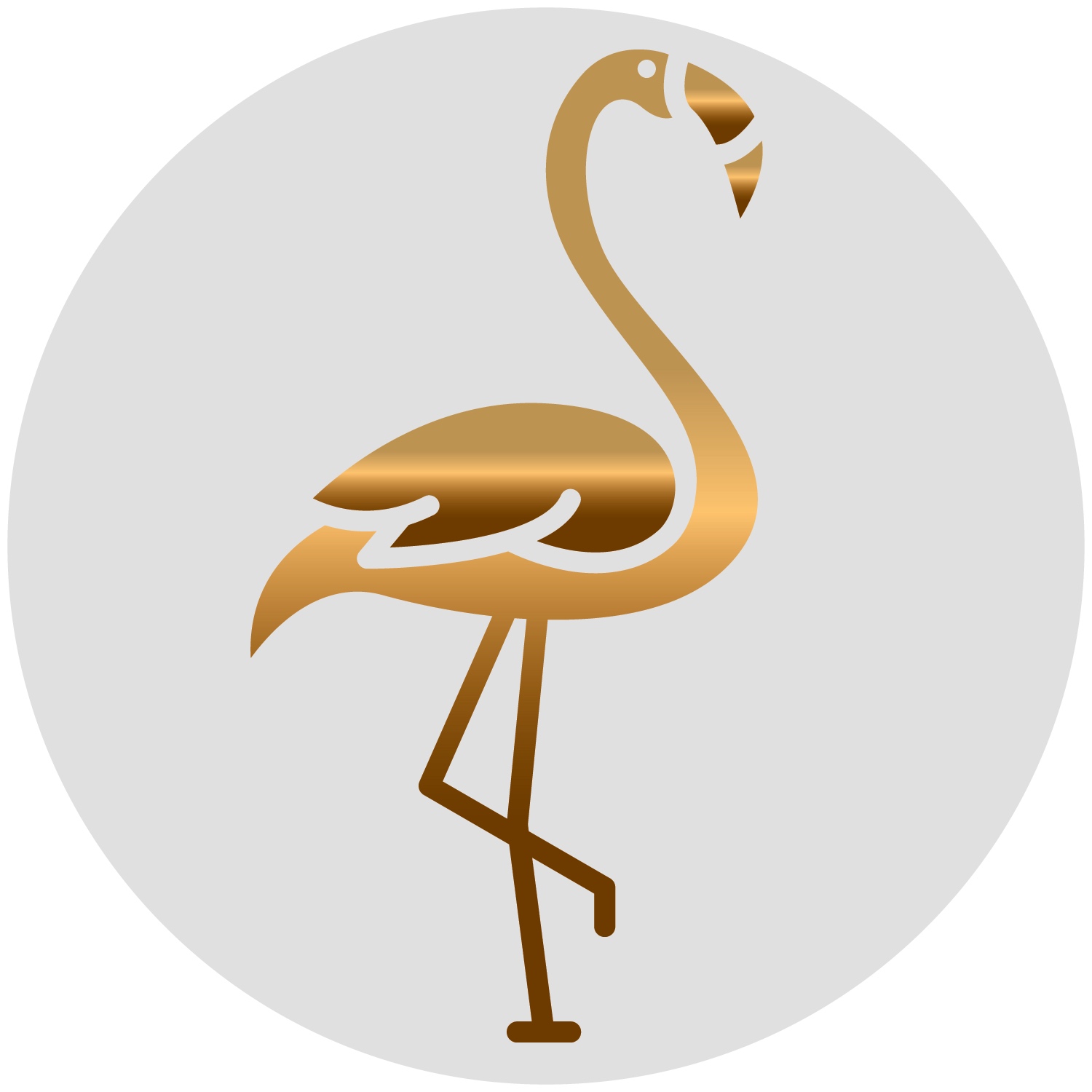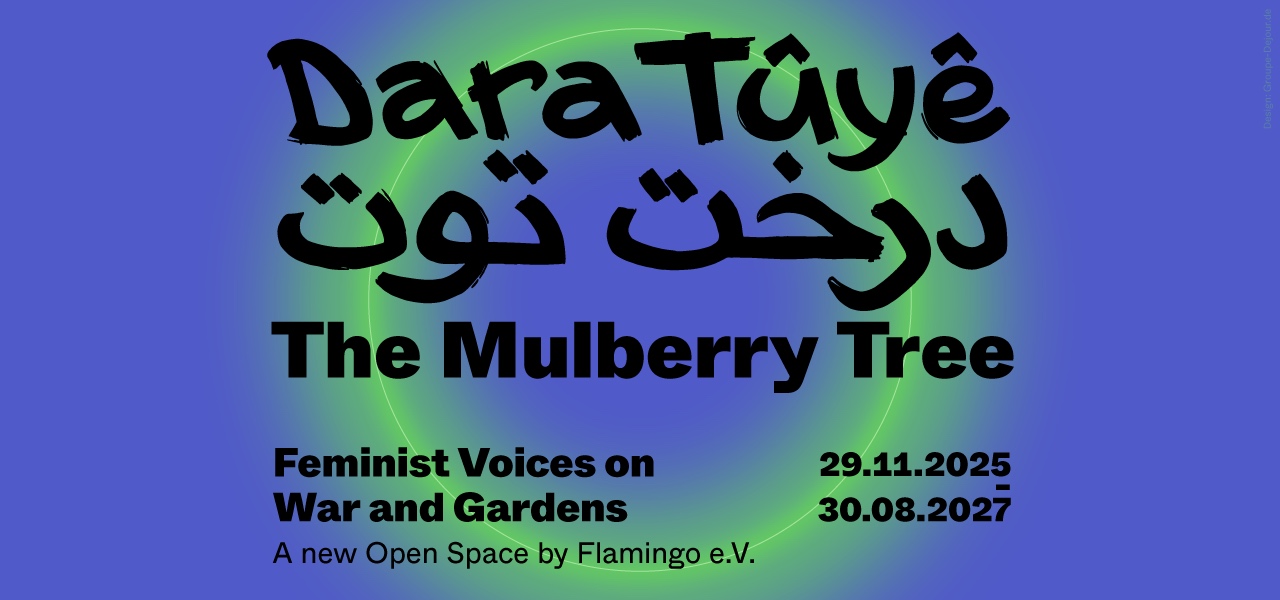Dara Tûyê – درخت توت – The Mulberry Tree
Sat, 29 November 2025 – Mon, 30 August 2027
| 9 € / 0 € |
| Please book your ticket in advance online or at the box office in the Foyer. |
| BERLIN GLOBAL, 1. OG – Room "Pictures of Berlin" |
| 12 years and older |
| English, German |
| Accessible for wheelchairs |
| Opening hours Mon, Wed, Thu, Fri, Sat, Sun: 10:30 am – 6:30 pm Tue: closed |
The Open Space exhibition by Flamingo e.V. in BERLIN GLOBAL explores the solidarity-based work of women across borders. Their collaboration creates space for new hope to emerge from experiences of violence and loss.
The project is rooted in the medicinal herb garden Hevrîn Xelef in Berlin-Neukölln, which is closely connected to the women’s village Jinwar in northeastern Syria and the organisation Women for Justice. The garden reveals the many roles such spaces can play: places of remembrance, healing and community, of mutual empowerment and agency. Beyond that, gardens are also sites of resistance against oppression and violence.
At the heart of the Open Space in BERLIN GLOBAL stands the Black Mulberry Tree, based on an artistic design by Ela Pour. It embodies fragility and strength, grief and hope. Women’s voices and experiences are framed musically by Yalda Yazdani. The interview partners share memories, emotions and knowledge about plants. The expansive tree sculpture is complemented by photographs by Philip Leutert taken in the Hevrîn Xelef garden, and by Anuscheh Amir-Khalili from Jinwar.
Exhibition texts are available in both German and English.
The title means “The Mulberry Tree” in Kurmanci and Farsi.
Open Space Partners
A project by Flamingo e.V.
In collaboration with:
Anuscheh Amir-Khalili | Curator
Ela Pour, Jasmin, Leyla Ferman, Lisa Dobkowitz, Nassim Tajbakhsh, Najlaa Matto, Nesrin, Shirin, Steph K’mour Wintz, Xatun, Xezal Ismail | Interview partner
Ela Pour, with support from Chris Jaritz and Anja Koch Kenk | Artistic design of the Black Mulberry Tree
Yalda Yazdani | Sound design
Philip Leutert | Photography
May Franzen | Graphic design
In cooperation with the Stadtmuseum Berlin
With support from anstiftung
Participants
Anuscheh Amir-Khalili
Anuscheh Amir-Khalili is an activist, anthropologist and curator of the Open Space. She was born in Iran to a German mother and an Iranian father. In 2015, she founded the organisation Flamingo, a network for refugee women⁺ and children. Since 2019, Flamingo has run the transcultural community garden Hevrîn Xelef in Berlin-Neukölln. For her work, she received the Citizen Award from the organisation Global Citizen in 2022. Since that same year, she has been a research associate at anstiftung and a point of contact for post-migrant communities, particularly in the field of community gardening.
Ela Pour
Ela Pour was born in Tehran in 1975. She spent her early years in England before returning to Iran. In 1989, war brought her to Germany, where she soon continued to pursue her passion for art and music, making them central forms of expression in her life. She studied costume and stage design at the Berlin-Weißensee School of Art, graduating with a diploma. Her work as an artist and tattooist moves between memory and the present. Personal experiences are distilled into poetic images that reveal both vulnerability and resilience.
Philip Leutert
Philip Leutert (born 1982) studied photography at the Ostkreuzschule in Berlin and the ZHdK in Zürich. He has worked as a photographer since 2013. His focus lies in portraits and abstract artistic photography
Yalda Yazdani
Dr. Yalda Yazdani is an Iranian ethnomusicologist, filmmaker, and curator based in Berlin. She received her PhD in Musicology from the University of Siegen in 2025. From 2017 to 2025, she curated music festivals and cultural projects such as Female Voice of Iran, Female Voice of Afghanistan, Female Voice of Kurdistan, Qashqai Female Voices, Ukrainian Female Voices, and Female Voices United. Her primary work centers on highlighting female voices internationally, especially those from the Middle East.
Partner

An Open Space by Flamingo e.V.
The association Flamingo is a grassroots movement based in Berlin – a community-driven initiative that emerges from the bottom up and is not steered by institutions. In addition to providing legal advice on asylum and residency for refugee women⁺, the organisation offers its infrastructure to other activists and networks. In 2019, the community garden Hevrîn Xelef was established: a place for collective gardening, remembrance, and self-organisation, located on the repurposed grounds of the New Cemetery St. Jacobi.
Media partner



